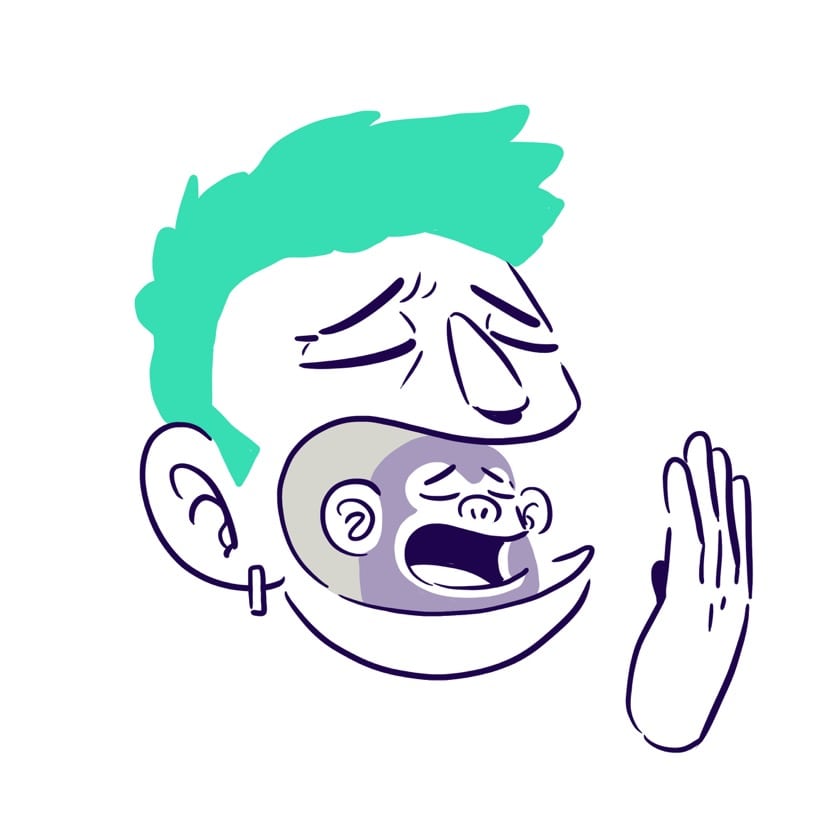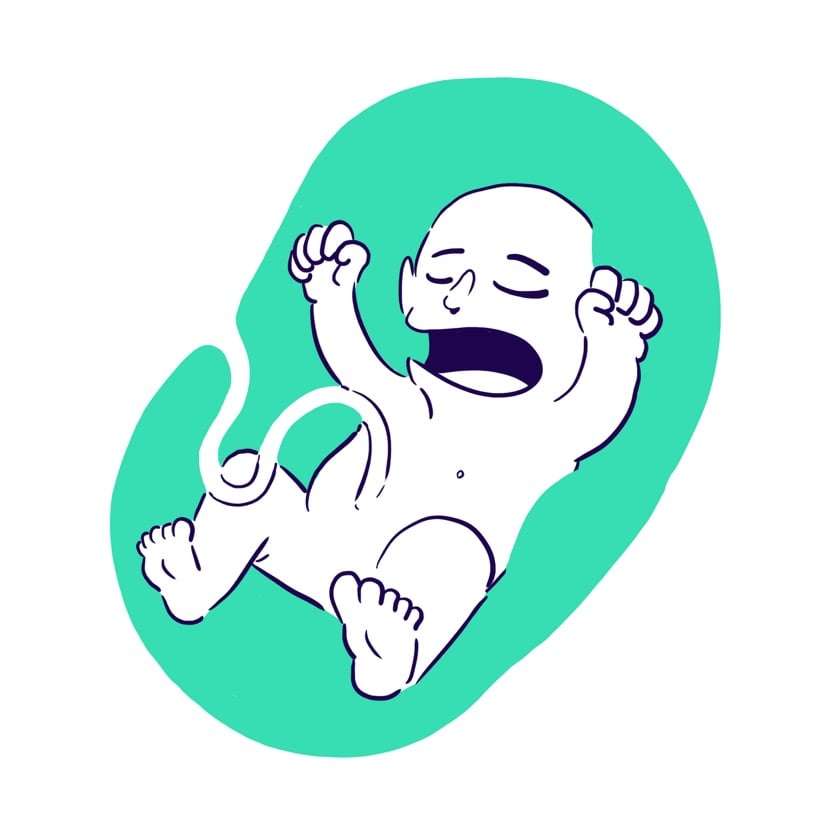Why do we yawn?
Yawning is universal! This sentence may seem a bit solemn to you, but, nevertheless, this statement could not be more well-founded. Indeed, since the dawn of time, we have been yawning. And this "we," also universal, includes the vast majority of living beings: animals and us, human beings. Yawning is therefore universal, and ancestral. It is a reflex that has always accompanied us, throughout evolution, and which manifests itself even before our birth. But then, why do we yawn? Is yawning only linked to sleep or fatigue? Explanations on this mystery that can sometimes prove contagious!

I yawn, you yawn, he yawns... are we asleep?
Before talking about contagion, let's first look at the origins of yawning. But what is yawning ? It's a reflex: yawning is a muscle stretch . This is obviously not just for athletes, since we've already told you: it's universal! However, yawning can be as dangerous as some sports, since it's the leading cause of jaw dislocation. So be careful not to yawn so much that your jaw dislocates!
Although it is strongly associated with fatigue and boredom, we can still wonder what causes yawning. Indeed, for centuries, it has been the subject of numerous studies and theories, sometimes contradictory and poorly supported. Many scientists have looked into this phenomenon. First of all, a 2014 study 1 shows that yawning has a thermoregulatory effect : in a warm environment or when the brain temperature rises, it allows the brain to cool down. Another study associates temperature and yawning 2 by reporting that we yawn less when we apply a warm cloth (at 46°) to our forehead than when we apply a cold compress (at 4°). Here, a priori, nothing to do with fatigue. In this case, why do we yawn in the morning , when we wake up, or when we are bored?
In reality, we don't really yawn because we're tired, as Dr. Walusinski, a specialist in this phenomenon, explains: "For me, it's a vigilance stimulator. We know more generally that it's a universal behavior in vertebrates that can be associated with the metabolic phenomena of sleep-wake alternation, and the regulation of satiety." Our famous muscle stretching therefore acts as a reflex to stimulate our vigilance , in the event of low brain activity, which is the case in the morning when we wake up when we are less vigilant. Of course, this doesn't mean that intelligent people yawn less than others thanks to the super activity developed by their brain! We are all equal when it comes to yawning. Well, almost all of us!
I yawn, you yawn, he yawns... we yawn?
Don't worry, this isn't a conjugation lesson! It's more about the notion of sharing or communication. Indeed, have you ever noticed that seeing someone yawn gives you an irresistible urge to do the same? It's very likely that you have: we yawn when someone else yawns ! This is called yawn echokinesis 3 . This theory of mind highlights everyone's mental ability to adopt the other's point of view and to decode their emotional state. In other words, compassion makes us sensitive to the yawns of others . So we're all very sentimental. Really? Not so sure...
Indeed, yawning as a sign of compassion does have its limits. A 2015 study 4 reveals that contagious yawning does not apply to psychopaths and that they are not sensitive to it. Yawning would therefore be a sign of good mental health . Phew, we are reassured! In addition to its association with the metabolic phenomena of our circadian rhythm ( stated by Dr. Walusinski 5 ), yawning turns out to be above all a reflex which, by definition, cannot be controlled. Our body manages this reflex to, according to various theories, oxygenate the brain, regulate its temperature or even to keep us in a state of alert in the event of a drop in our vigilance, boredom or fatigue.

I yawn therefore I am!
As Socrates, who also yawned, wrote, "I know that I know nothing." This could be part of the conclusion of the analysis of yawning. Why do we yawn? Only our body really knows. We have shared this mystery with our animal friends since the dawn of time, without being able to fully understand it. The multitude of analyses and studies of all kinds have not succeeded in completely unraveling this physiological enigma. As proof, it is indeed a primitive center of our brain that "manages" yawns. So primitive that it has been observed that paralyzed people can once again move certain parts of their body during a yawn! This astonishing fact was reported by the very serious " The New Yorker " with reference to the work of a renowned British neurologist, Sir Francis Walshe.
As you will have understood, yawning remains as mysterious to our minds as it is essential in our existence. This archaic reflex will occur approximately 250,000 times in our lives, and even before, since fetuses also yawn. So, between an irresistible gesture of compassion, a predicted loss of vigilance, an excessive temperature in our brain, or even a miracle (but unfortunately temporary) cure for paralysis, yawning ultimately takes many forms, but with a single certainty: that it connects us all thanks to the universal manifestation of an expression of wide-open mouths on our distorted faces! So, on your marks, get set… yawn!
Sources:
[1] A thermal window for yawning in humans: yawning as a brain cooling mechanism , Massen JJ, Dusch K et al, Physiol Behav. , 2014 [2] Yawning as a brain cooling mechanism: Nasal breathing and forehead cooling diminish the incidence of contagious yawning , Gallup, AC, & Gallup, GG, Jr, Evolutionary Psychology , 2007 [3] Echokinesis of yawning , Wulusinski O, Electroneurobiologia Buenos Aeres , 2004 [4] Contagious yawning and psychopathy , Rundle Brian K, Vaughn Vanessa R et al, Personality and Individual Differences vol 86 , nov 2015 [5] New conceptions on yawning , Review of theories from Hippocrates to the present day , Walusinski O, 2014


